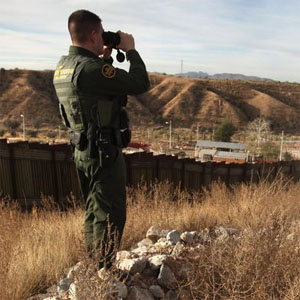
Oscar
Charleston, SC
Male, 31
Spent a bit over four years (2006-2010) serving as a Border Patrol Agent in Tucson Sector, AZ: the busiest sector in the country. Worked numerous positions, and spent the last year and a half operating/instructing ground radar installations. Duties included: field patrols, transport, processing, control room duties, transportation check, checkpoint operations, static watch duties, etc.
Short answer: yes. Law enforcement work of any type has statistically been very hard on families and relationships. Unfortunately law enforcement officers have a much higher rate of substance abuse, suicide, etc. It's a high stress line of work, working long hours, and dealing with the bottom of society. A lot of people live fine, normal lives - but the numbers are pretty bad. High rate of divorce is common. I do think the BP might be better than some local LEO work. I was away for an average of 11 hours a day, so if you have loved ones or family, it can be very taxing.
Yep.
You can. I don't recommend it, for obvious reasons. This has been discussed previously.
That question will come up during your background investigation and/or polygraph test. I'm not sure what effect a positive answer would have in that situation. It is something that will come up for any government job which involves any level of security clearance though, and I doubt it can help.
Unfortunately in certain lines of work - those things you do on purpose or by accident as a young person can come back and bite you in the ass. I know several of my fellow agents had smoked weed before joining the BP, but I don't know if they answered truthfully during their background investigations.
Personally I think weed should be legalized, but I imagine it might depend on the person doing your background investigation.
Chef
 Has anyone ever found anything gross in their food on your watch?
Has anyone ever found anything gross in their food on your watch?
Bar Mitzvah DJ
 What's the craziest thing you've seen at a bar mitzvah?
What's the craziest thing you've seen at a bar mitzvah?
Investment Banker
 Did you experience the notorious 100-hour work weeks?
Did you experience the notorious 100-hour work weeks?
The last couple of weeks before you graduate start looking...that's the beauty of the internet. Start researching and contact apartment complexes near your station etc. Heck you could even check into one of those hotels that lets you pay by the week for the first couple of weeks. Me and my classmates found a house to rent via Craigslist. We stayed there for 6 months then all moved to our own apartments/houses.
It's up to you to arrange the move of your family. It's not easy, but you'll figure it out. Just don't sign any papers or leases until you graduate. You should be able to tell the home owner or apartment complex your situation.
No idea. That's a customs question, so I'm not sure. Mexican customs is pretty lax.
Not sure, I have no experience in status applications. That would be a question better addressed to the officers you're dealing with during the application process.
-OR-
 Login with Facebook
Login with Facebook (max 20 characters - letters, numbers, and underscores only. Note that your username is private, and you have the option to choose an alias when asking questions or hosting a Q&A.)
(A valid e-mail address is required. Your e-mail will not be shared with anyone.)
(min 5 characters)
By checking this box, you acknowledge that you have read and agree to Jobstr.com’s Terms and Privacy Policy.
-OR-
 Register with Facebook
Register with Facebook(Don't worry: you'll be able to choose an alias when asking questions or hosting a Q&A.)